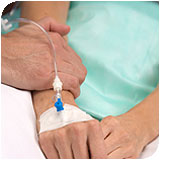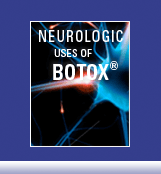 When patients have a Multiple Sclerosis (MS) attack, the patient and physician have to determine whether they desire to intervene and treat the attack to shorten its course. An attack, or exacerbation, is used by physicians to indicate a sudden worsening that lasts longer than 24 hours that is not caused by some other medical illness (such as a fever causing infection). The only treatment which is thought to lessen the duration of the symptoms of an MS attack is steroids. Steroids come in an oral form, IV form, and then in a medication that causes the body to release its own steroids (ACTH)
When patients have a Multiple Sclerosis (MS) attack, the patient and physician have to determine whether they desire to intervene and treat the attack to shorten its course. An attack, or exacerbation, is used by physicians to indicate a sudden worsening that lasts longer than 24 hours that is not caused by some other medical illness (such as a fever causing infection). The only treatment which is thought to lessen the duration of the symptoms of an MS attack is steroids. Steroids come in an oral form, IV form, and then in a medication that causes the body to release its own steroids (ACTH)
The only well-done head-to-head study of oral prednisone versus IV solu-medrol followed by oral prednisone versus placebo was done for optic neuritis. Optic neuritis is a demyelinating attack on the optic nerve and is commonly seen in multiple sclerosis. In the optic neuritis treatment trial, none of these patients had any clinical history suggestive of MS. Despite this, we know that the majority of the patients in this trial will ultimately develop MS and therefore its results are commonly used to guide our current use of all steroids in MS attacks. This study showed that the oral prednisone group and the IV solu-medrol group recovered their vision faster than the placebo group. The ultimate recovery of vision was the same for all three groups. Other studies have suggested the recovery of vision is up to about 3 months faster by receiving the IV steroid therapy.
The oral prednisone group had a higher relapse rate than either the placebo or the IV solu-medrol group. For this reason, oral prednisone (at least in the relatively low dose given in this study) is not felt to be the best option for acute attacks. Prior to the development of intravenous solumedrol, physicians commonly used ACTH injections to stimulate the adrenal gland to produce steroids. This ACTH is available by injection in a medication called Acthar.
Whatever form of steroids chosen, physicians and their patients have to decide whether the current attack is sufficiently disabling to justify the intervention with steroids. The most serious long-term risk is a hip disease called aseptic necrosis of the femoral heads. Short term problems with steroids can include increased blood glucose, thinning of skin, fluid retention, change in personality, and hallucinations.



